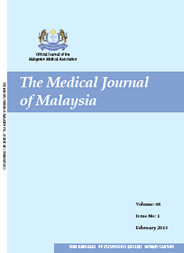MJM, Vol 70 Supplement 1 September 2015
Molecular Epidemiology of Diabetes Mellitus
Saw Swee Hock School of Public Health, National University of Singapore
ABSTRACT
The prevalence of chronic diseases, in particular diabetes is increasing to alarming levels across all countries. There are 345 million diabetics worldwide and more than half of them reside in Asia. It is estimated that diabetes will become the seventh leading cause of death in the world by 2030. This is to be further exacerbated by rapid population ageing and urbanisation.
Diabetes is a complex disease with a genetic predisposition modified by environmental factors. Globalisation and increasing adoption of sedentary lifestyle and unhealthy dietary habits are contributing to this worldwide pandemic. It poses high human, social and economic costs to all societies being a leading contributor of morbidity and mortality, decreasing productive years of the populations.
With recent advances in DNA genotyping, epigenomic profiling and emergence of linkage and genome wide association studies, it has been possible to highlight the role of genetic factors in the development of diabetes and to explore the gene environment interactions in its pathogenesis. However, such studies currently explain only a small percentage of heritability. It is essential to acknowledge the role of factors, such as obesity and physical inactivity in increasing the risk. Therefore, adopting a holistic approach with greater emphasis on behavioural and lifestyle interventions is required to halt this growing problem. Considering the complex nature of the issue, we should adopt a system’s perspective and base our interventions on individual’s biology, environment and other traits rather than just emphasising on genetic pathways and biomarkers, which contribute a small percentage to the disease causation.
